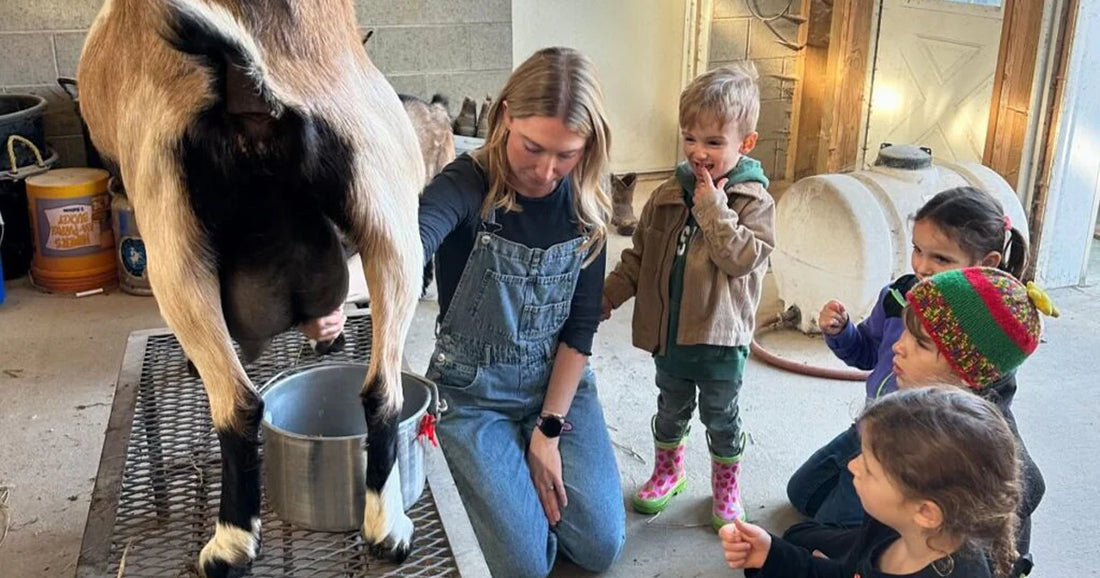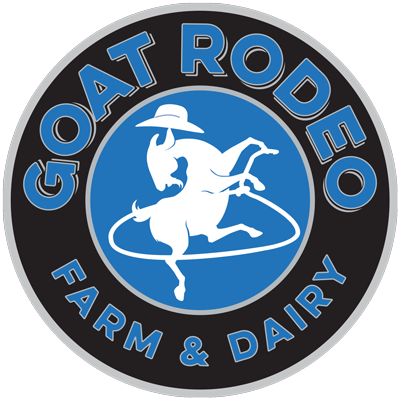
Learn From Unique Farms in Western Pennsylvania
Share
Pittsburgh Parent - There is no better way to teach your kids to connect to the natural world than to visit a farm. Whether you pick strawberries or apples, go on a hayride, run through a corn maze or buy fresh tomatoes, a farm is the perfect environment to talk to your kids about where food comes from and how fresh fruits and vegetables grow, and to learn about farm animals and their young.
In addition to many wonderful traditional farms that families can visit in and around Pittsburgh, there are also unique farms that offer a completely different experience.
Goat Rodeo Farm & Dairy is a 130-acre, family-owned farm located in Allegheny County.
“We have about 100 goats, between the milking, teens, kids and bucks,” says owner India Loevner. “Right now is kidding season. A lot of baby goats are being born, so we have lots of goat’s milk.”
And what do goat farmers do with goat’s milk? They make cheese!
Cheese made from goat’s milk is called chevre, a soft, spreadable cheese which many people simply call “goat cheese.”
“Kids really like it because it doesn’t have a ‘funky flavor,” Loevner says.
For the Loevner family, cheesemaking is a collaboration.
“My son, Will, majored in agribusiness at Penn State [University]. He is the farm manager, cheesemaker and he works with the goats,” she explains.
For the past 10 years, the family has collaborated to create numerous award-winning cheeses, like one called Bamboozle, which is a mixture of goat’s and cow’s milk and has a “supple, semi-soft texture with notes of prosciutto and peanuts,” and another favorite, Hootenanny, a Gouda-type cheese made from goat’s milk. One of their most popular cheeses is Wild Rosemary, which, as the name suggests, is hand-pressed with freshly dried rosemary leaves.
“Cheesemaking is a tricky puzzle,” Loevner says.
The tricky part is that cheesemakers can’t taste their cheese until three months after they make it because three months is the minimum amount of time a cheese needs to age before it can be eaten.
Although the Loevner family makes cheese all year long, their goats “dry off” in November, which means they don’t produce milk anymore, so at the end of every year, they get cow’s milk from Turner’s Dairy to supplement their supply. Though at the time we spoke to Loevner, she was excited because they were preparing to make their first batch of spring goat’s milk cheese.
Because it’s run by a small staff and they need to focus on the goats and cheese,
the farm is not open to the public. But this summer, take a moment to look for
the Goat Rodeo cheese, which is widely available in the Pittsburgh region, and
talk to your kids about goats and cheese. You can explain to them how a local
family raises goats and makes this cheese that you see in the market and at a lot of restaurants.
And if your kids wonder what it’s like to live on a goat farm, remember this fun quote from Loevner: “Goats are more fun than berries.”
